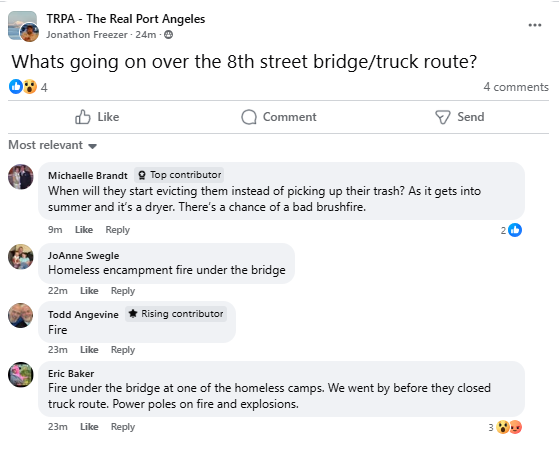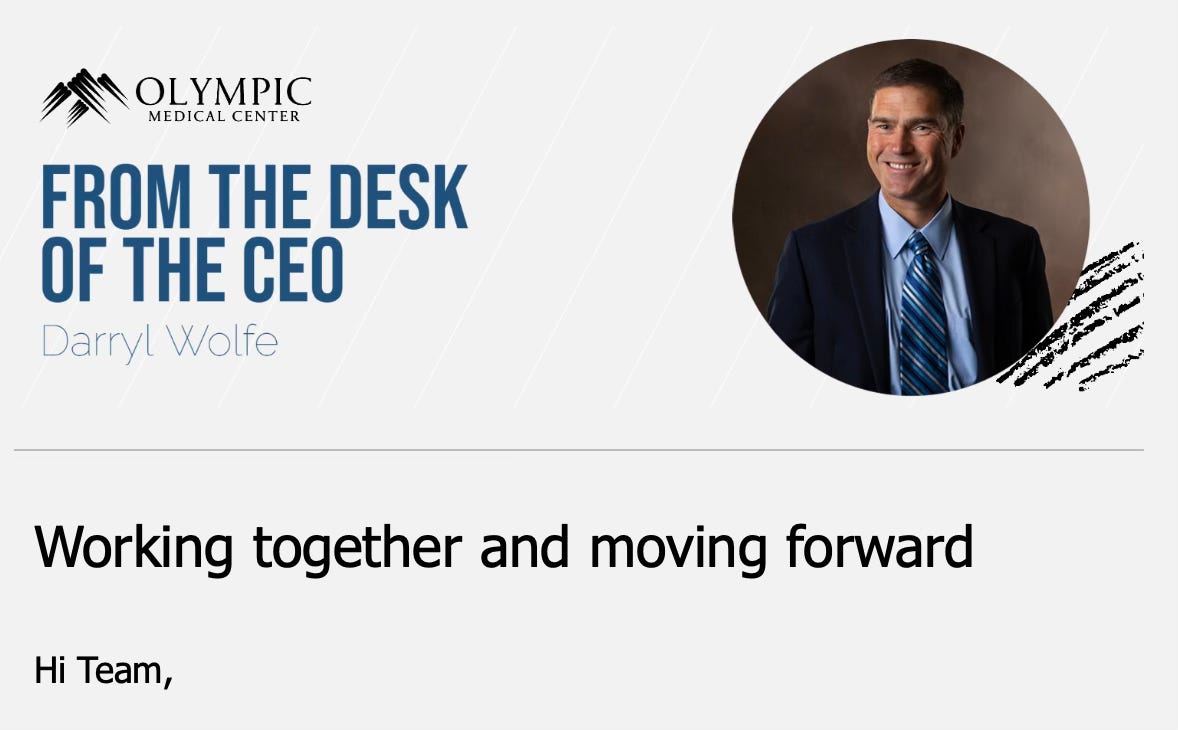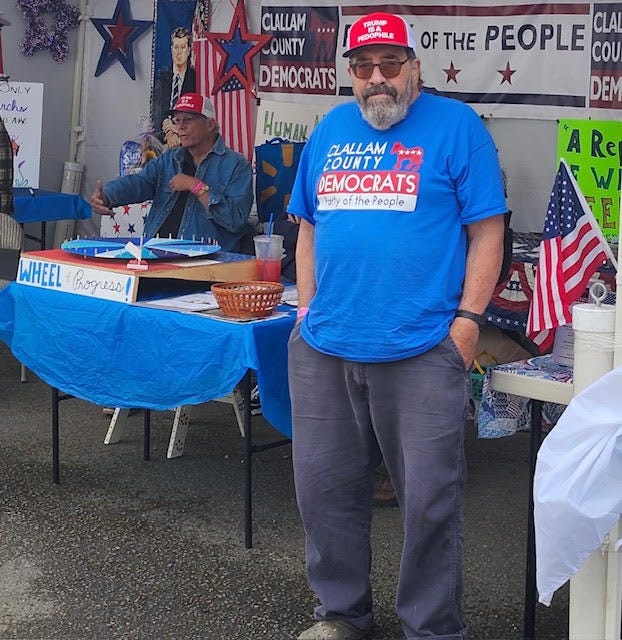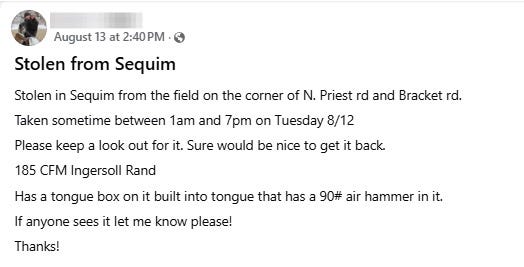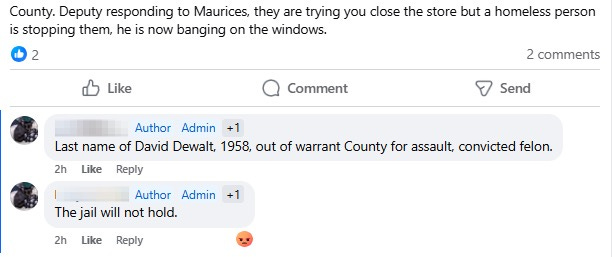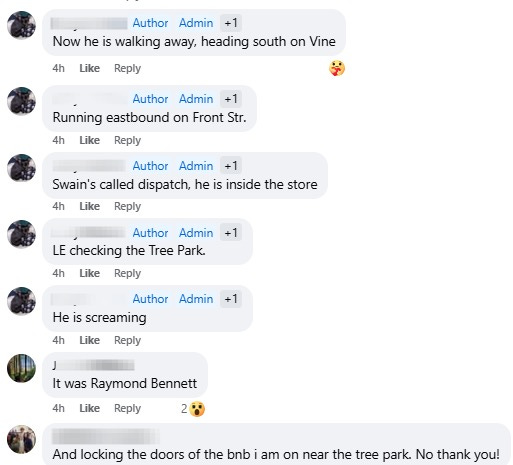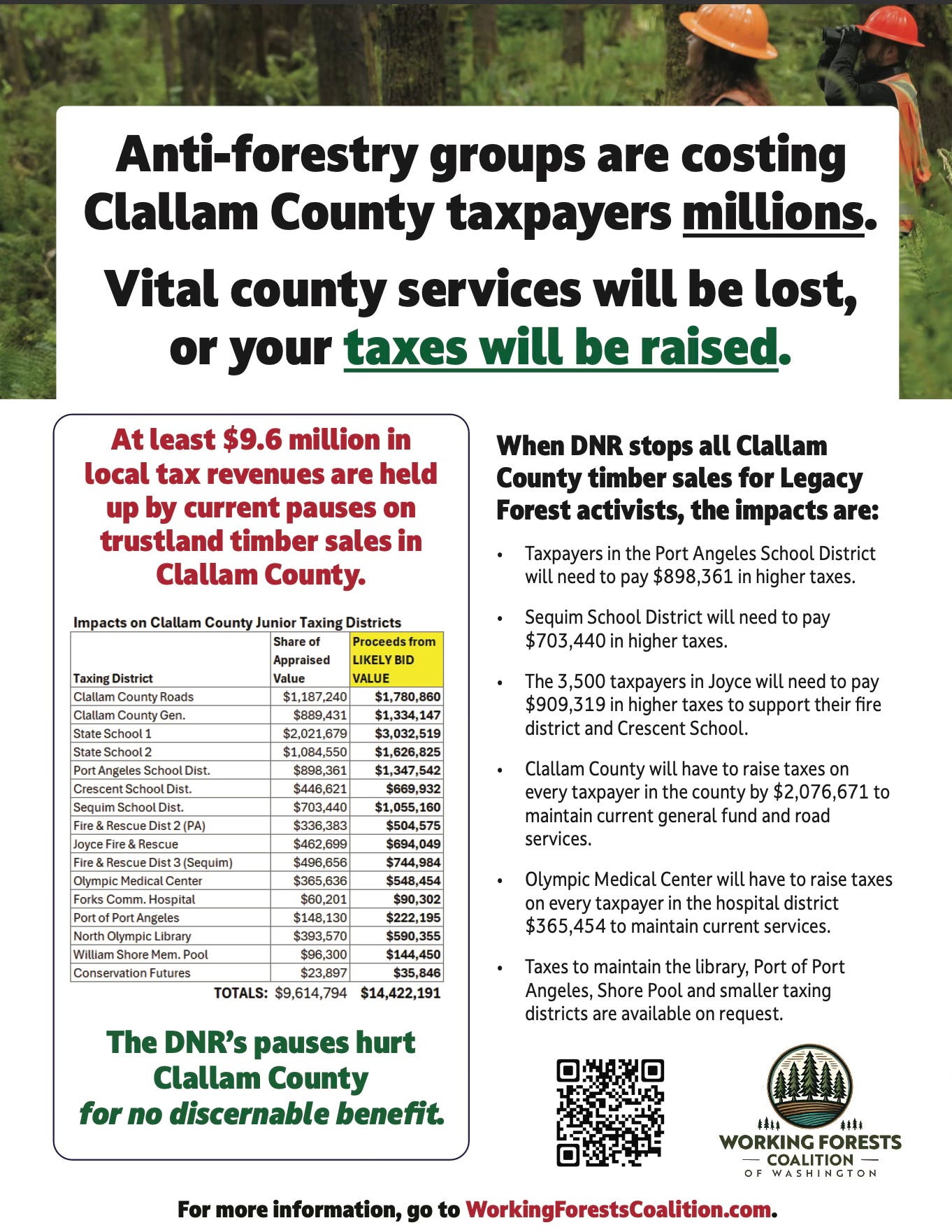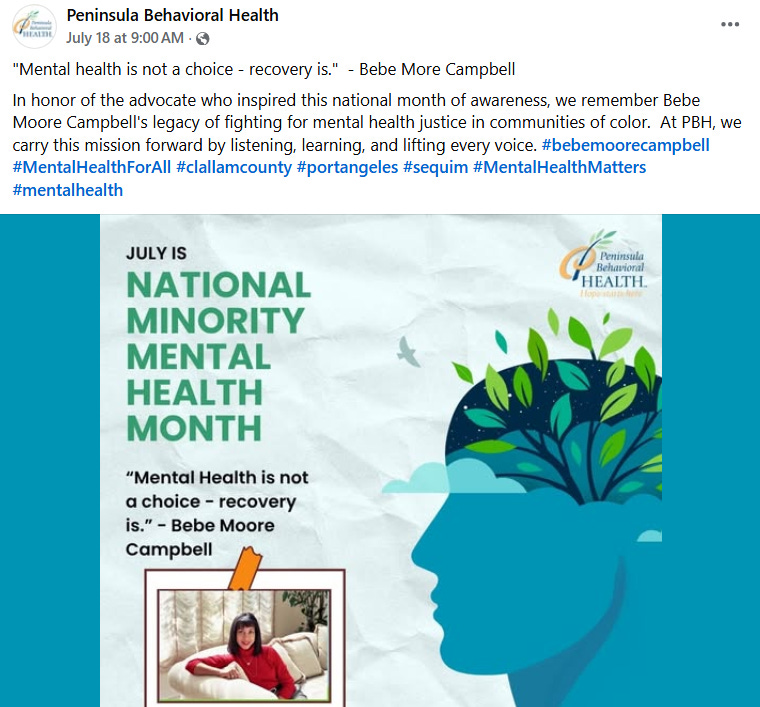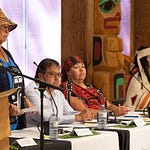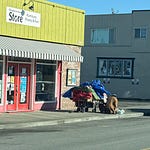Clallam County is rural, resource-poor, and resilient — but also deeply divided over how to govern itself. This ten-part roundup pulls together stories that reveal a county trying to balance regulation with reality, health care with accountability, and equity with consistency. Whether it’s a clean-air board pushing new burn-permit rules for people without internet, a hospital CEO telling staff to “work together” right before resigning, or a fair booth that drew more comments than any other story — each vignette raises bigger questions. Who’s listening to rural residents? Who’s footing the bill? And who gets to decide what “progress” looks like?
Burn permits vs. rural reality
The Olympic Regional Clean Air Agency (ORCAA) — where District 3 Commissioner Mike French serves on the board — is recommending that Clallam County begin requiring free permits for residential yard-waste burning.
French told the Board of County Commissioners that the goal was simply to “educate the public on how to burn safely… so people don’t accidentally start wildfires.”
Here’s the problem for some rural residents: There’s no curbside yard-waste pickup. No composting facilities. No recycling options for brush. For many residents, burning is the only option.
And unlike residents on the east end of the county, many of Commissioner French’s rural residents here lack reliable internet or the tech skills to navigate the online forms to request a free permit.
Until real alternatives exist, a permit requirement is a solution in search of a problem. And it’s worth asking: Will the encampment beneath the 8th Street Bridge need a permit too? (Special “thank you” to CCWD West End correspondent Dr. Sarah.)
OMC’s “uphill climb” — then a sudden exit
Six days before resigning “for personal reasons,” Olympic Medical Center CEO Darryl Wolfe emailed staff a long letter last month urging unity, patience, and perseverance.
He thanked staff, acknowledged ongoing failures flagged by both CMS and the Department of Health, and said OMC was “in the thick of it” and “not going to see a reprieve until we establish results.”
“We continue to move forward,” Wolfe wrote, framing the situation as an uphill climb rather than a downhill slide.
But the reality is grim: OMC remains under a compliance extension and continues to “juggle” basic patient-safety requirements.
His sudden resignation six days after promoting “working together” leaves a hospital still teetering on the brink.

30% of Sequim visiting the food bank?
At a recent Board meeting, Commissioner Mark Ozias reported that “at our most recent Sequim Food Bank board meeting we were informed that in the previous reporting period the equivalent of about 30% of the population of Sequim had visited the foodbank within the previous month.”
Sequim’s ZIP code (98382) has over 30,000 residents. That would mean roughly 9,000 people using the food bank in a single month — or about 750 people per day it’s open.
The Sequim Food Bank website notes that it’s “available to anyone” — with no income restrictions. So is this a crisis of poverty, a culture of dependency, or simply a no-questions-asked benefit that people understandably take advantage of?
Either way, those numbers are staggering — and deserve scrutiny, not just applause.
The Fair booth that broke records
Our recent article about a political booth at the Clallam County Fair — where two men wore hats referencing pedophilia — became the most commented-on and voted-on story in CC Watchdog’s history.
It clearly struck a nerve.
If you have thoughts about how the fair is run, the Fair Advisory Board meets Wednesday, August 27, 2025 at 6 p.m.in the County Courthouse (Room 160). This is a public meeting and you can attend in person or virtually (instructions here.)
Call 360-565-2659 or email Melissa.Earley@clallamcountywa.gov to give public comment.
Sequim’s stolen week
A dump truck.
A towable air compressor.
A Sprinter van.
All stolen in the Sequim area in recent weeks.
Once upon a time, these thefts would have made the front page. Now they’re just another Tuesday.
We’re getting used to it — and that’s the problem.
Port Angeles: harm reduction, hard reality
Port Angeles — dubbed by some the “harm reduction capital” of the county — continues to distribute taxpayer-funded meth pipes, crack-pipe cleaning kits, and “boofing kits.”
Meanwhile, this week brought two ugly reminders of the real-world impacts:
A local business trying to close for the day was blocked by a homeless man “banging on the windows.” Scanner reports identified him as a convicted felon.
A welfare check at the Red Lion found a man stumbling, running into traffic, being hit by a car, and eventually bleeding inside Swain’s near the notorious Tree Park — which has been overtaken by transients.
He refused medical care, fearing arrest.
It’s just another day for first responders, small businesses, and neighbors dealing with the downstream effects of addiction, untreated mental illness, and a policy regime that seems more focused on handing out supplies than restoring public order.
History isn’t always a Hallmark card
For those interested in nuance — not nostalgia — the book Enlightenment Now by Harvard psychologist Steven Pinker offers a sobering look at the pre-colonial Pacific Northwest.
Far from peaceful utopias, many local tribes were highly stratified, slave-holding societies. Abundant natural resources allowed a small elite to dominate through hereditary rule, slave raids, and potlatch ceremonies meant to display power.
This isn’t a conservative talking point — Pinker is a liberal who supported Barack Obama and has donated to Democratic causes.
But he’s also willing to criticize the romanticized “noble savage” myth, showing that authoritarianism, slavery, and cruelty are not uniquely Western traits.
History is complicated. And it’s worth remembering that complexity before using the past to shame the present.
Timber pause, tax hike?
As the Board of County Commissioners eyes a tax increase, the county’s revenue stream from timber is drying up — thanks in part to Commissioner of Public Lands Dave Upthegrove.
His January 2025 pause on timber sales in “Structurally Complex Forests” has now stretched past seven months. The result?
-33% shortfall in FY 2025 harvests.
-82% projected shortfall for Q1 of FY 2026 — the lowest in 20 years.
$60–70 million lost to schools, counties, and trust beneficiaries.
$25 million lost in DNR management fees.
All this despite data showing the state already meets its ecological targets, and confirmation from U.S. Fish & Wildlife that DNR is in compliance.
So how can Clallam County afford to lose timber revenue while shifting more land into tax-exempt tribal trust status — and still ask taxpayers to pay more?
Seabrook: affordable housing for whom?
The proposed Seabrook development east of Sequim — 600 homes near John Wayne Marina — is on hold. That gives locals time to look at Seabrook’s other project near Pacific Beach, WA.
Of the 17 homes currently listed there:
Six are over $1 million
Four are over $2 million
Bare lots are priced at $2.5–2.6 million
Is this the “affordable housing” solution planners are touting? Or just another playground for the wealthy who use Clallam County as a weekend backdrop?
Virtue signaling or real service?
This summer, Peninsula Behavioral Health promoted “National Minority Mental Health Month,” honoring an advocate who fought for mental-health justice in communities of color.
PBH wrote: “At PBH we carry this mission forward by listening, learning, and lifting every voice.”
It’s a noble message — but also raises questions. Should taxpayer-funded mental-health providers divide their mission by identity group? Isn’t every patient’s mental health important every month?
If the goal is equity, great. But if the result is selective virtue signaling — where some people’s voices are lifted more loudly depending on the calendar — then it’s worth asking whether this is health care or politics.




